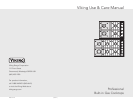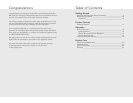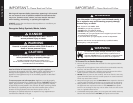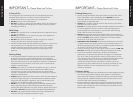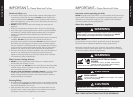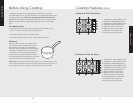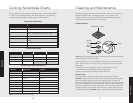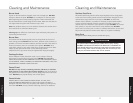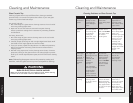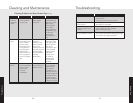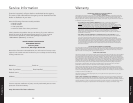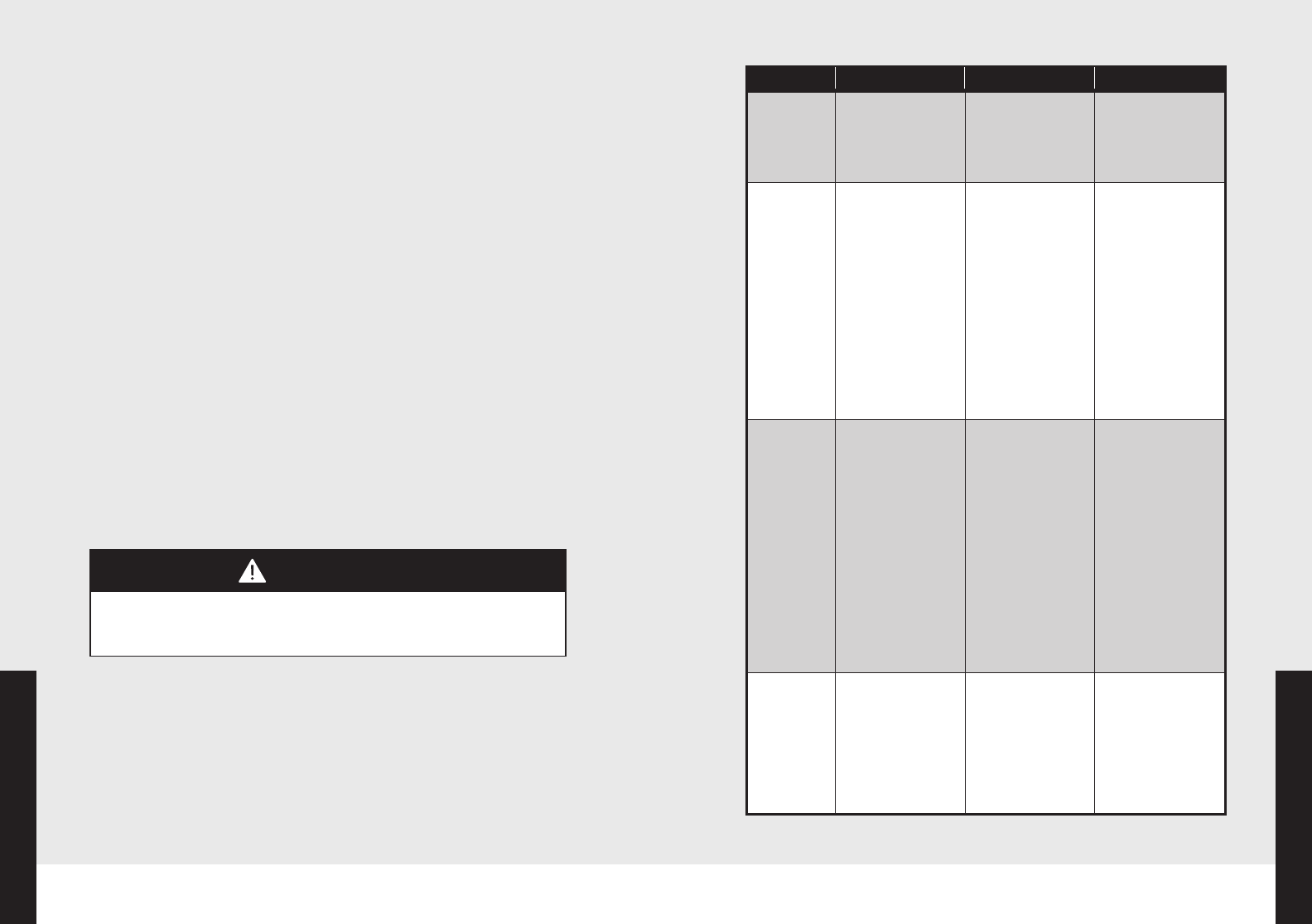
18
Product Care
19
Product Care
Glass Ceramic Top
Cleaning of glass ceramic tops is different from cleaning a standard
porcelain finish. To maintain and protect the surface of your new glass
ceramic top, follow these basic steps:
For normal, light soil:
1. Rub a few drops of a glass ceramic cleaning cream to the cool soiled
area using a damp paper towel.
2. Wipe until all soil and cream are removed. Frequent cleaning
leaves a protective coating which is essential in preventing scratches
and abrasions.
For heavy, burned soil:
1. Rub a few drops of glass ceramic cleaning cream to the cool soiled
area using a damp paper towel.
2. Carefully scrape remaining soil with a single-edged razor blade. Hold
the blade at a 30˚ angle against the ceramic surface.
3. If any soil remains, repeat the steps above. For additional protection,
after all soil has been removed, polish the entire surface with the
cleaning cream.
4. Buff with a dry paper towel. As the cleaning cream cleans, it leaves a
protective coating on the glass surface. This coating helps to prevent
build-up of mineral deposits (water spots) and will make future cleaning
easier.
Note:
Dishwashing detergents remove this protective coating and
therefore, make the glass ceramic top more susceptible to staining.
WARNING
BURN OR ELECTRICAL SHOCK HAZARD
Make sure all controls are OFF and cooktop is COOL before cleaning.
Failure to do so can result in burns or electrical shock.
Cleaning and Maintenance
Cleaning Problems on Glass Ceramic Top
Problem
Cause To Prevent To Remove
Brown
streaks and
specks
Cleaning with
sponge or cloth
containing soil-
laden detergent
water.
Use cleaning
cream with
clean damp paper
towel.
Use a light
application of
cleaning cream
with a clean damp
paper towel.
Blackened
burned on
spots
Spatters or
spillovers onto a
hot cooking area
or accidental
melting of a
plastic film, such
as a bread bag.
Wipe all spillovers
as soon as it is
safe and DO NOT
put plastic items
on a warm
cooking area.
Clean area with
cleaning cream
and a damp paper
towel, non-
abrasive nylon pad
or scouring brush.
If burn-on is not
removed, cool
cooktop, and
carefully scrape
area with a single-
edged razor blade
held at a 30°
angle.
Fine
brown/gray
lines, fine
scratches, or
abrasions
which have
collected
soil
Coarse particles
(salt, sugar) can
get caught on the
bottom of
cookware and
become
embedded
into top.
Use of abrasive
cleaning materials.
Scratches from
rough ceramic
glass, or ceramic
coated cookware.
Wipe the bottom
of cookware
before cooking.
Clean top daily
with cleaning
cream. DO NOT
use ceramic or
ceramic coated
cookware.
Fine scratches
are not removable
but can be
minimized by
daily use of
cleaning cream.
Smearing or
streaking
Use of too much
cleaning cream
or use of a soiled
dishcloth.
Use a small
amount of cream.
Rinse thoroughly
before drying. Use
only paper towels
or nylon scrub pad
or brush.
Dampen paper
towel with a
mixture of vinegar
and water and
wipe surface.
Wipe area with
damp paper towel
or lint free cloth.
Cleaning and Maintenance



